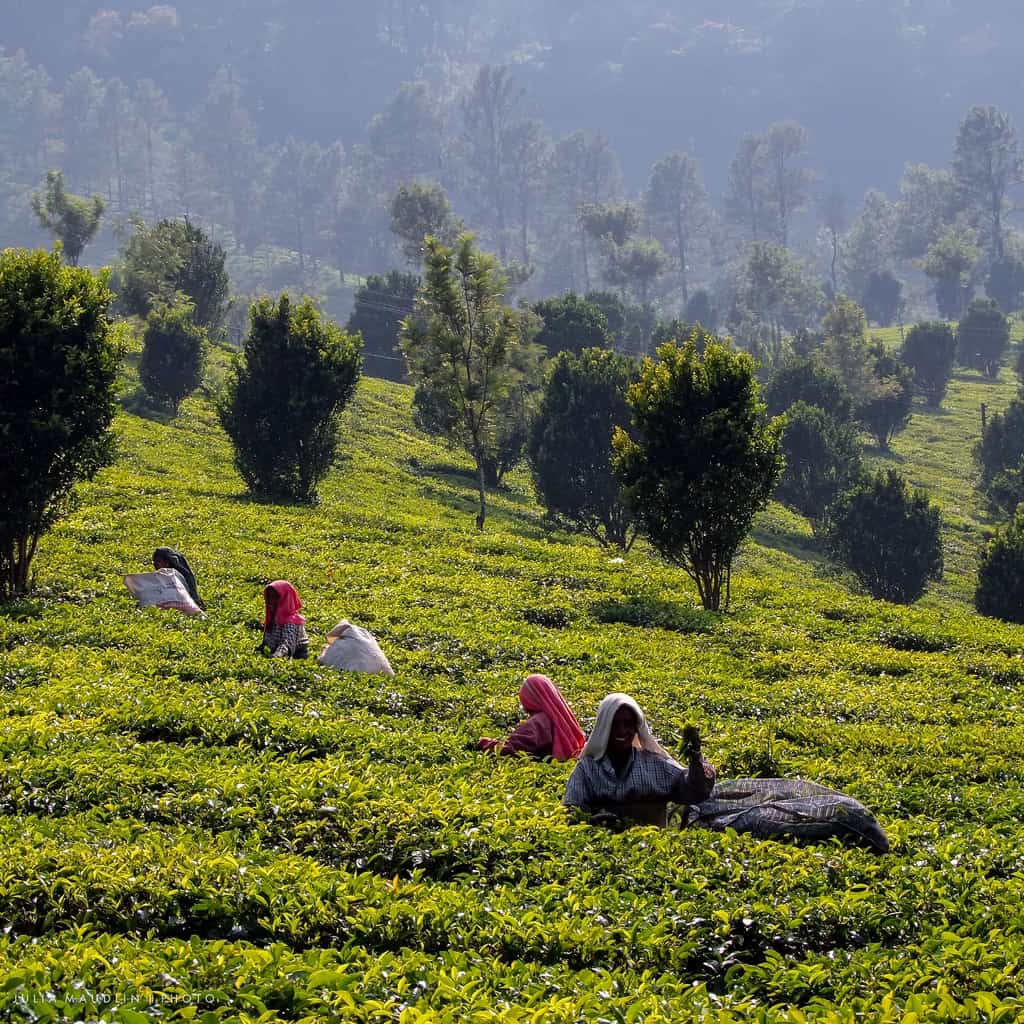A previous version of this article unfortunately contained an image featuring tea brands which are not implicated in the recent news story. In fact, they were social enterprises that are examples of positive change in the tea industry. As a consumer, you can also take positive action to help ensure tea workers are treated fairly. Ask brands: Who Picked My Tea?
Some tea plantations in India that are stamped with ‘slavery-free’ labels are abusing and underpaying their workers according to new research published by Britain’s Sheffield University. This includes certification schemes such as Fairtrade, Rainforest Alliance, Ethical Tea Partnership (ETP), and Trustea.
Researchers found that there was almost no difference between the treatment of around 600 workers surveyed on certified and non-certified plantations in Assam and Kerala — two of the country’s prime tea producing regions.
Take action to protect tea workers.
All workers were found to be living below the poverty line and in some cases those on certified plantations were treated worse, having wages and benefits withheld on top of facing sexual violence.
Thomson Reuters Foundation reports:
The tea industry in India, the world’s second-largest producer that employs 3.5 million workers, has faced accusations of abusive conditions before but this is the one of the first studies into the certified schemes that lead to higher prices.
“Very bad labor exploitation was endemic … it affected almost every laborer we spoke to,” said Genevieve LeBaron, a politics professor at the university who led the two-year study.
“Our research raises really big questions about the effectiveness of certification overall as a tool to solve labor issues in supply chains.”
The researchers assessed 22 tea plantations in Assam and Kerala, including sites certified by major players Fairtrade, Rainforest Alliance, Ethical Tea Partnership (ETP) and Trustea.
In response to the report’s findings, Fairtrade said it would investigate. A spokesman for the company said, “Fairtrade takes these allegations of unacceptable conditions at certified estates in Assam and Kerala very seriously.”
Rainforest Alliance said it was “very concerned” by the findings, while Ethical Tea Partnership (ETP) issued a statement saying, “We agree that more needs to be done to improve tea workers lives and we know that certification is only one way of raising standards, which is why our main remit is to work on social impact projects.”
Trustea did not respond to requests for comment.
Many trade experts say this report has potential to rock the industry as certification schemes are supposed to guard against exactly these types of abuses.
“It’s a huge blow and really disappointing. It speaks to the fact that just putting a label on things doesn’t automatically make it a good product,” said Danielle Nierenberg, president of the NGO Food Tank.
Workers on the tea plantations told researchers that they were paid only 137 rupees ($2) a day — far below minimum wage — to meet a harvesting quota of 24 kg of tea per day. By law, estate owners are required to provide workers with housing, toilets, health facilities, and subsidized food, but few if any of these were actually provided.
Alarmingly, on both certified and non-certified plantations, 54% of workers had fallen into debt, borrowing from plantation owners at levels that put them into debt bondage.
Cindy Berman of the Ethical Trading Initiative (ETI) said she was not surprised by the findings, adding that “They (buyers, retailers, and brands) cannot push the risk and responsibility down the supply chain as this will ultimately impact on workers.”
Assam labor minister, Pallab Lochan Das, has vowed to increase monitoring of tea plantations in coming months to ensure that workers are paid at least the minimum wage.
“Right now, the condition in tea gardens of Assam is very tough and miserable for workers,” Das said. “It is almost like slavery.”







Freedom United is interested in hearing from our community and welcomes relevant, informed comments, advice, and insights that advance the conversation around our campaigns and advocacy. We value inclusivity and respect within our community. To be approved, your comments should be civil.
This is why I do not support oxfam